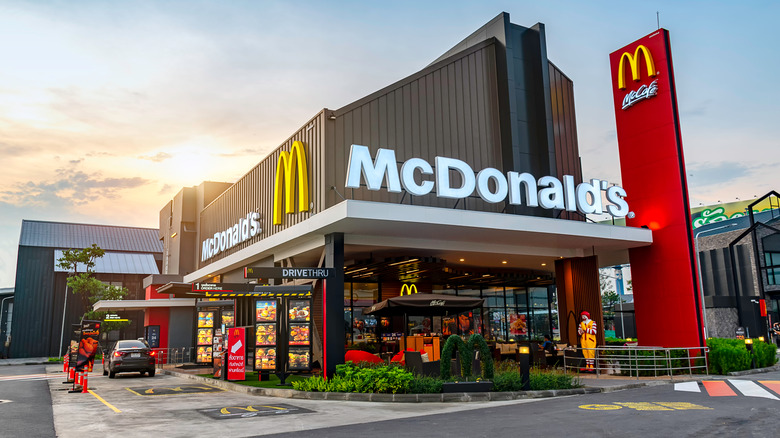McDonald's And Its Franchisees Butt Heads Over 'Joint Employer' Rules
McDonald's is not legally considered a joint employer of its franchise restaurants. That was established via a 2019 settlement for a case in which McDonald's was at odds with the National Labor Relations Board over whether the company was responsible for franchisees' unfair practices against workers trying to unionize. Years earlier, the board effectively claimed that McDonald's should be treated like a joint employer, making it partly accountable for franchisee misconduct. The Golden Arches argued that it had little power over the operations of its franchisees and thus was not liable. Although it agreed to make payments to some workers as part of the settlement, McDonald's did not admit joint employer status. Legal challenges to the decision failed, and the NLRB ultimately changed its previous stance and agreed with McDonald's.
In the year since McDonald's avoided being labeled a joint employer, it has increasingly acted as if it is one. At least, that's the feeling of many disgruntled franchise owners who are complaining about McDonald's policies. In February, Restaurant Business Online reported that franchise owners were upset about several ongoing issues, including overly harsh performance standards, and a high rate of unannounced inspections that franchise owners believe will ultimately limit their ability to renew their franchising agreements or to buy more franchises.
The simmering feud has only heated up over the past few months. In fact, a prominent bloc of franchise owners has actually hired an attorney to represent them in the ongoing disagreement with the Golden Arches.
Friction increases between McDonald's and its franchise owners
According to a statement released by the National Owners Association (NOA), an overwhelming number (94%) of its members believe McDonald's shouldn't be recognized as a joint employer. But the statement adds: "If McDonald's does not want to be considered a joint employer, they need to stop acting like one."
The NOA, which is composed of 1,000 plus franchise owners, has taken steps to promote its own interests, including, as Restaurant Business Online reports, bringing in attorney Robert Zarco to act on its behalf. Zarco thinks that the increasing possibility of McDonald's being officially labeled a joint employer may cause the company to be less controlling in dealing with its franchise owners. The joint employer designation, after all, is one that could make McDonald's liable in lawsuits by workers. The NOA is not the only faction of disgruntled franchise owners, however, and there are several competing agendas. Some groups want joint employer status, for instance, while others are pushing hard for increased state and federal regulations regarding franchises.
Deciding whether McDonald's qualifies as a joint employer isn't a straightforward task. According to the BakerHostetler law firm, a judge's ruling on the matter could depend on whether it's applying the standards of the National Relations Board, Fair Labor Standards Act, or state laws. And those aren't the only factors that could come into play. Even the NLRB's position on McDonald's joint employer status may have changed between presidential administrations.

